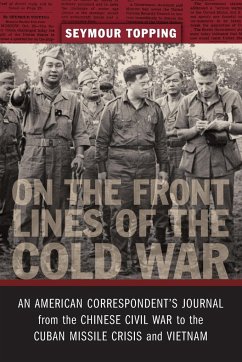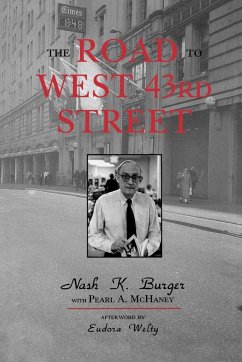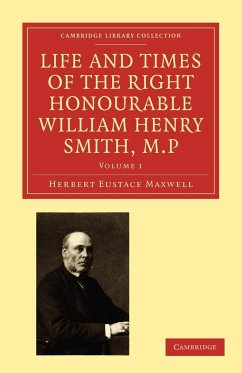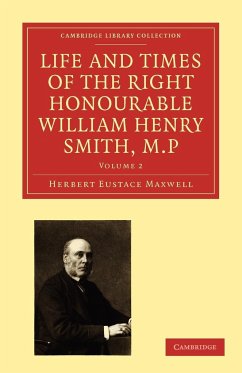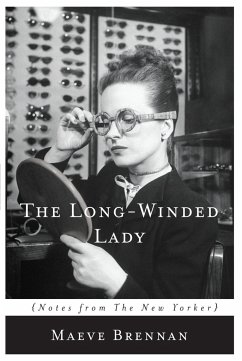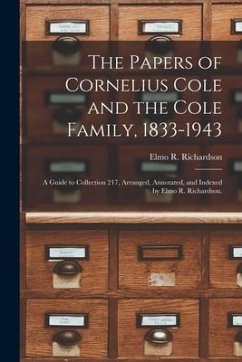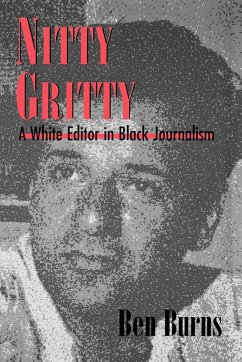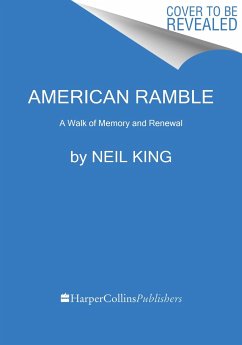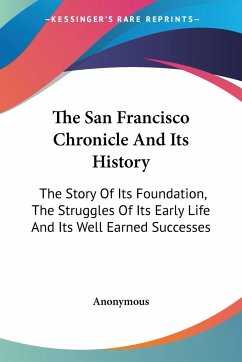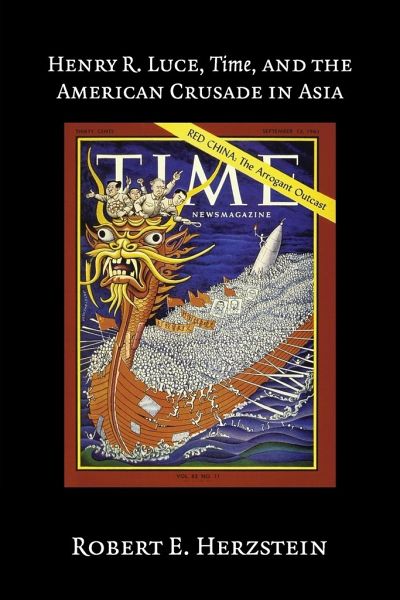
Henry R. Luce, Time, and the American Crusade in Asia
Versandkostenfrei!
Versandfertig in 1-2 Wochen
41,99 €
inkl. MwSt.

PAYBACK Punkte
21 °P sammeln!
How Henry R. Luce used his famous magazines to advance his interventionist agenda.Henry Robinson Luce (1898-1967) founded Time, Life, Fortune, and Sports Illustrated. Born in China to missionary parents, Luce was a kind of lay preacher, anxious to mold the American mind and advance his ideological program: intervention, capitalism, democracy (when appropriate) and Christian activism. The most celebrated and influential editor of his day, Luce was also obsessed with the American mission in the world, and with China and East Asia, the place of his birth. Luce tried to 'sell' this mission to a so...
How Henry R. Luce used his famous magazines to advance his interventionist agenda.
Henry Robinson Luce (1898-1967) founded Time, Life, Fortune, and Sports Illustrated. Born in China to missionary parents, Luce was a kind of lay preacher, anxious to mold the American mind and advance his ideological program: intervention, capitalism, democracy (when appropriate) and Christian activism. The most celebrated and influential editor of his day, Luce was also obsessed with the American mission in the world, and with China and East Asia, the place of his birth. Luce tried to 'sell' this mission to a sometimes reluctant public. A passionate anti-Communist interventionist, he also convinced Americans that the U.S. had perversely 'lost' China to the Communists. A fervent advocate of the Vietnam intervention, Luce, author of the American Century edited incoming cables so that magazines might conform to his ideas.
Review quote:
From reviews of the hardback: 'Herzstein has unearthed a wealth of information about Luce and Time, which will interest historians of China as well as the US between the 1920s and 1960s.' Times Higher Education Supplement
' - fascinaing study - well written, with a good pace...' Asian Affairs
Table of contents:
Preface; Introduction; Part I. From the American Century to the Cold War: 1. Henry Luce and China: prelude to an American crusade; 2. Learning to market Chiang's China; 3. Bitter victory; 4. China on the brink: what role for America?; Part II. Luce and the 'Loss' of China: 5. Cold war strategy: allies and enemies in the battle for China; 6. Losing China: the hunt for culprits intensifies; 7. Anti-communist allies in Asia: MacArthur and Rhee; 8. McCarthy and Korea: crises and opportunities; 9. The campaign for a wider war in Asia; 10. Electing Eisenhower while fighting McCarthy; Part III. Time Inc., Eisenhower, and Asian Policy, 1952-1959: 11. Unwelcome moderation: Eisenhower's caution in East Asia; 12. Keeping the pressure on Mao and Ho; Part IV. Time, Luce, and the looming disaster in Vietnam, 1960-1967: 13. Time Inc. and nation-making in Vietnam: from Kennedy to Johnson; 14. Troubled crusade in Vietnam; 15. The final years of Henry Luce's mission to Asia.
Henry Robinson Luce (1898-1967) founded Time, Life, Fortune, and Sports Illustrated. Born in China to missionary parents, Luce was a kind of lay preacher, anxious to mold the American mind and advance his ideological program: intervention, capitalism, democracy (when appropriate) and Christian activism. The most celebrated and influential editor of his day, Luce was also obsessed with the American mission in the world, and with China and East Asia, the place of his birth. Luce tried to 'sell' this mission to a sometimes reluctant public. A passionate anti-Communist interventionist, he also convinced Americans that the U.S. had perversely 'lost' China to the Communists. A fervent advocate of the Vietnam intervention, Luce, author of the American Century edited incoming cables so that magazines might conform to his ideas.
Review quote:
From reviews of the hardback: 'Herzstein has unearthed a wealth of information about Luce and Time, which will interest historians of China as well as the US between the 1920s and 1960s.' Times Higher Education Supplement
' - fascinaing study - well written, with a good pace...' Asian Affairs
Table of contents:
Preface; Introduction; Part I. From the American Century to the Cold War: 1. Henry Luce and China: prelude to an American crusade; 2. Learning to market Chiang's China; 3. Bitter victory; 4. China on the brink: what role for America?; Part II. Luce and the 'Loss' of China: 5. Cold war strategy: allies and enemies in the battle for China; 6. Losing China: the hunt for culprits intensifies; 7. Anti-communist allies in Asia: MacArthur and Rhee; 8. McCarthy and Korea: crises and opportunities; 9. The campaign for a wider war in Asia; 10. Electing Eisenhower while fighting McCarthy; Part III. Time Inc., Eisenhower, and Asian Policy, 1952-1959: 11. Unwelcome moderation: Eisenhower's caution in East Asia; 12. Keeping the pressure on Mao and Ho; Part IV. Time, Luce, and the looming disaster in Vietnam, 1960-1967: 13. Time Inc. and nation-making in Vietnam: from Kennedy to Johnson; 14. Troubled crusade in Vietnam; 15. The final years of Henry Luce's mission to Asia.





